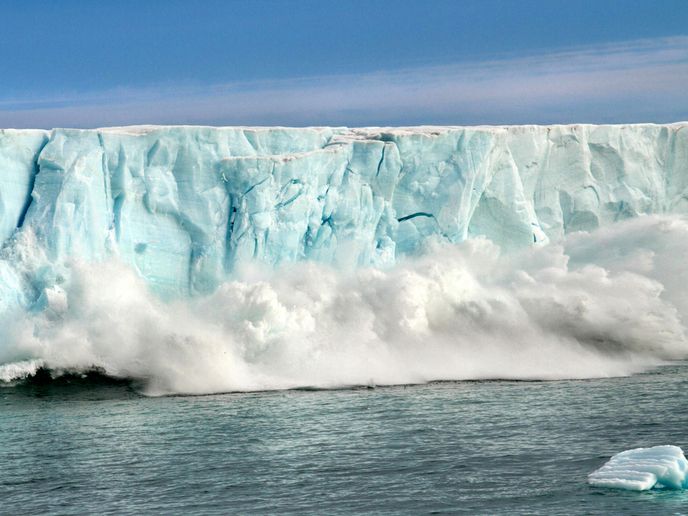Researchers have provided the first-ever projections of coastal erosion across the entire Arctic until the end of the century. According to their findings, more and more land mass is being lost with each degree of warming.
Global warming is thawing permafrost in the Arctic and melting sea ice, leaving the coasts – where most human activity in the Arctic is concentrated – less protected and subject to erosion. Arctic coastal erosion not only damages infrastructure and threatens coastal communities, it also releases organic carbon from permafrost, compounding the vulnerability of Earth’s climate.
Scientists predict that our continually warming planet will increase rates of Arctic coastal erosion in the coming decades. However, they do not know how much or how fast coastal erosion will increase in response to global warming.
To answer this question, a new study supported by the EU-funded Nunataryuk project has provided the first-ever 21st century projections of coastal erosion for the entire Arctic. Published in the journal ‘Nature Climate Change’, the findings show that the Arctic-mean erosion rate is expected to increase and very likely exceed its historical range of variability before the end of the century under different emissions scenarios.
The researchers explored rates of erosion increase under low, moderate and very high greenhouse gas emissions scenarios. “We have run through a range of scenarios, depending on how much greenhouse gases humanity will emit in the coming years,” states the study’s lead author Dr David Nielsen of Nunataryuk project partner University of Hamburg, Germany, in a press release posted on the university’s website. “According to the study, not only is more and more land mass being lost in absolute terms; with each degree of temperature increase, the annual rate of erosion increases – in meters, but also in millions of tons of carbon released.”
Up to three times the erosion rate by the end of the century
The findings show that the rate of the Arctic-mean coastal erosion is expected to increase from 0.9 m per year during the period 1850-1950 to 1.6 2.0 and 2.6 m per year by the end of the 21st century under the low, moderate and very high greenhouse gas emissions scenarios, respectively. This means that the coastal erosion rate may be between 1.8 and 2.9 times higher by the end of 2100. In the moderate and very high emissions scenarios, erosion rates across the Arctic continue to rise in the second half of the century. However, as Dr Nielsen explains, “a shift toward greater sustainability and significantly lower greenhouse gas emissions could slow the acceleration in the second half of the century.” But this will not stop the loss of land mass entirely, he warns.
In the Arctic, coastal erosion is caused by a combination of thermal and mechanical factors. Taking this into consideration, the study’s coastal erosion model combines Arctic permafrost coastline observational data with current Earth system models, climate reanalyses and ocean surface wave simulations. “Depending on the location and shape of the respective coast, we expect to see varying wave heights. With increasing temperature, the range of the waves also increases, because the sea ice disappears. In addition, the ice-free period in the summer is lengthened, making coasts even more vulnerable,” Dr Nielsen concludes. The results of the Nunataryuk (Permafrost thaw and the changing arctic coast: science for socio-economic adaptation) study can be used to guide policymakers in coastal conservation and socioeconomic planning.







Leave a Reply